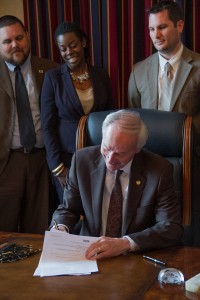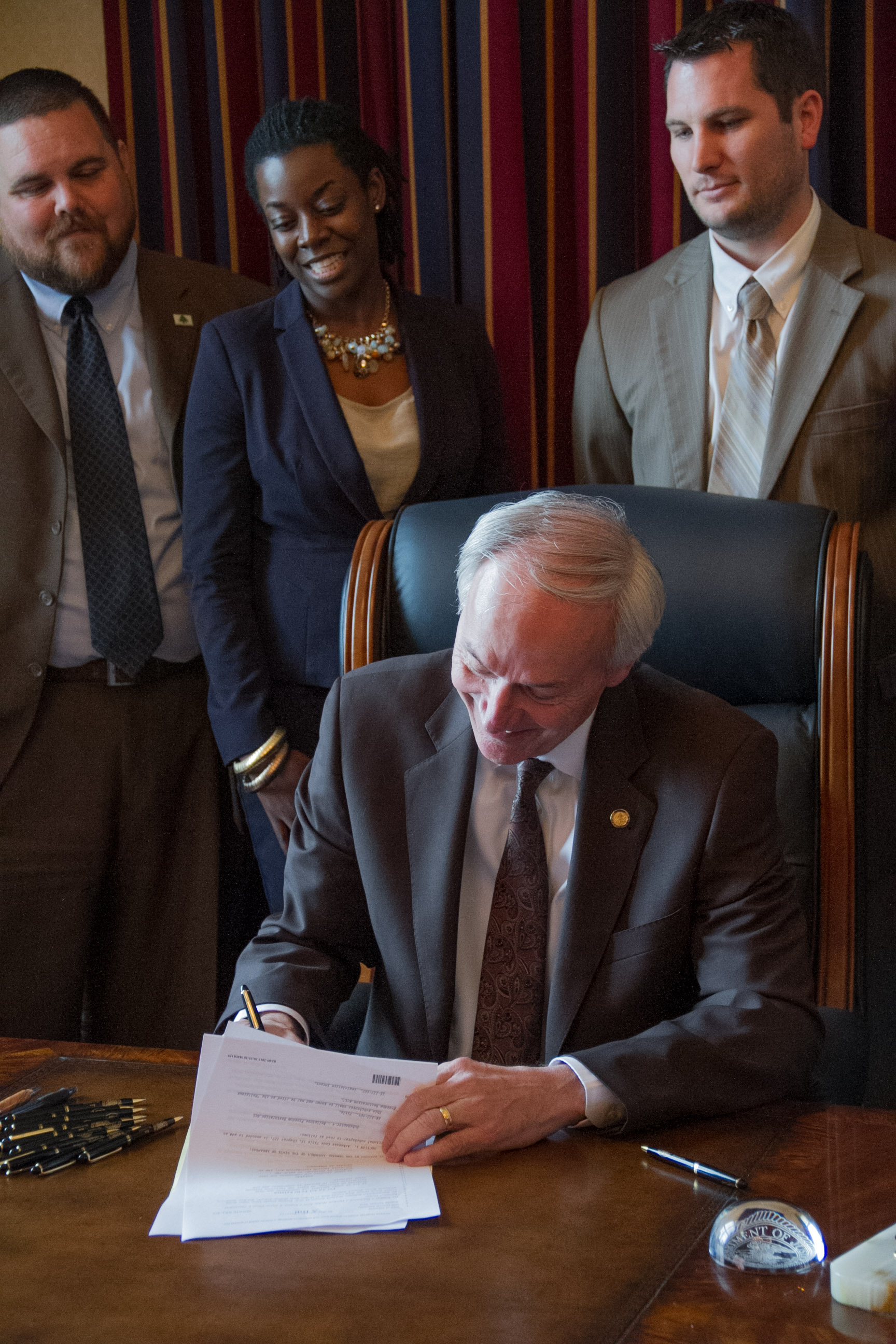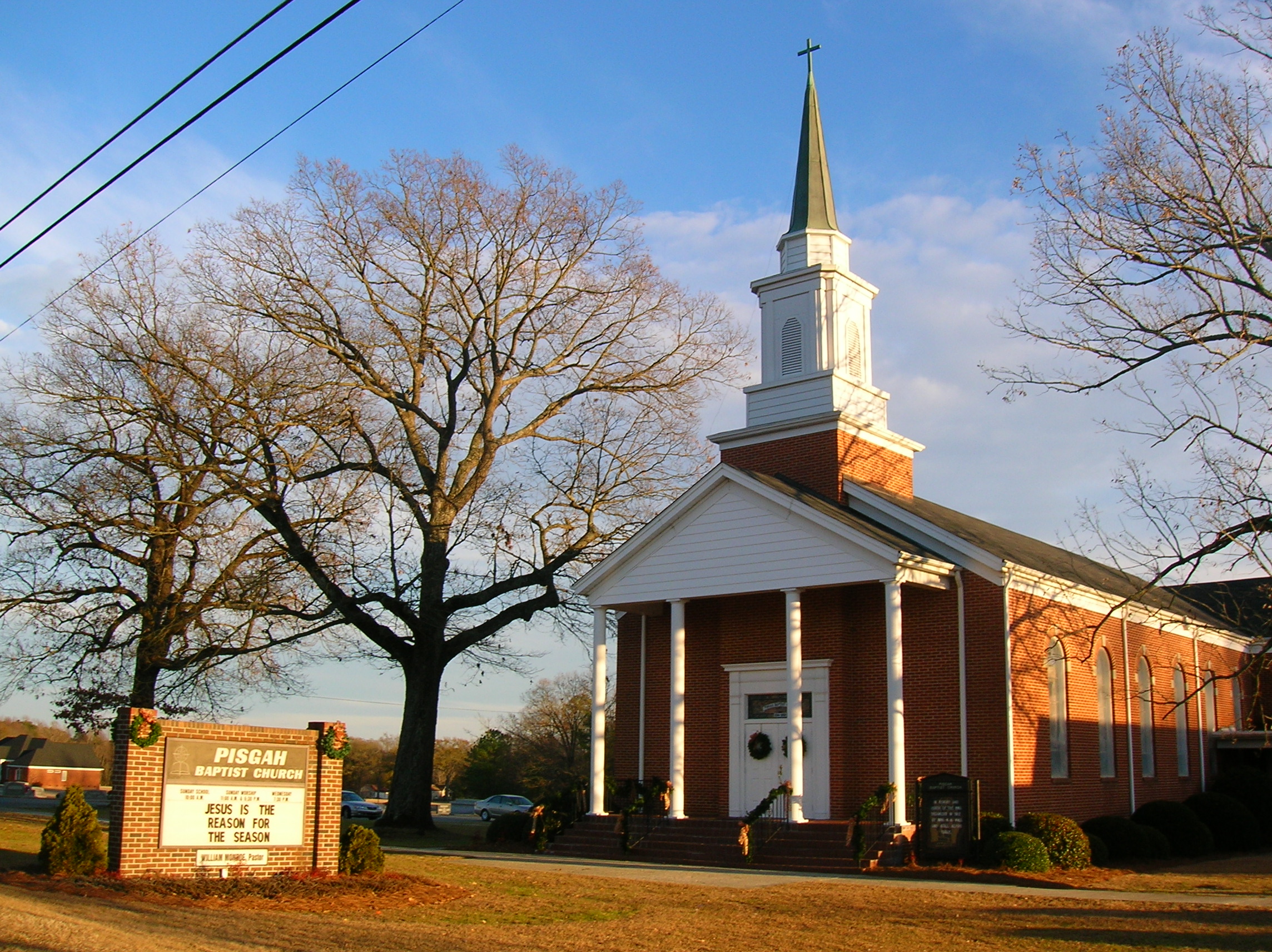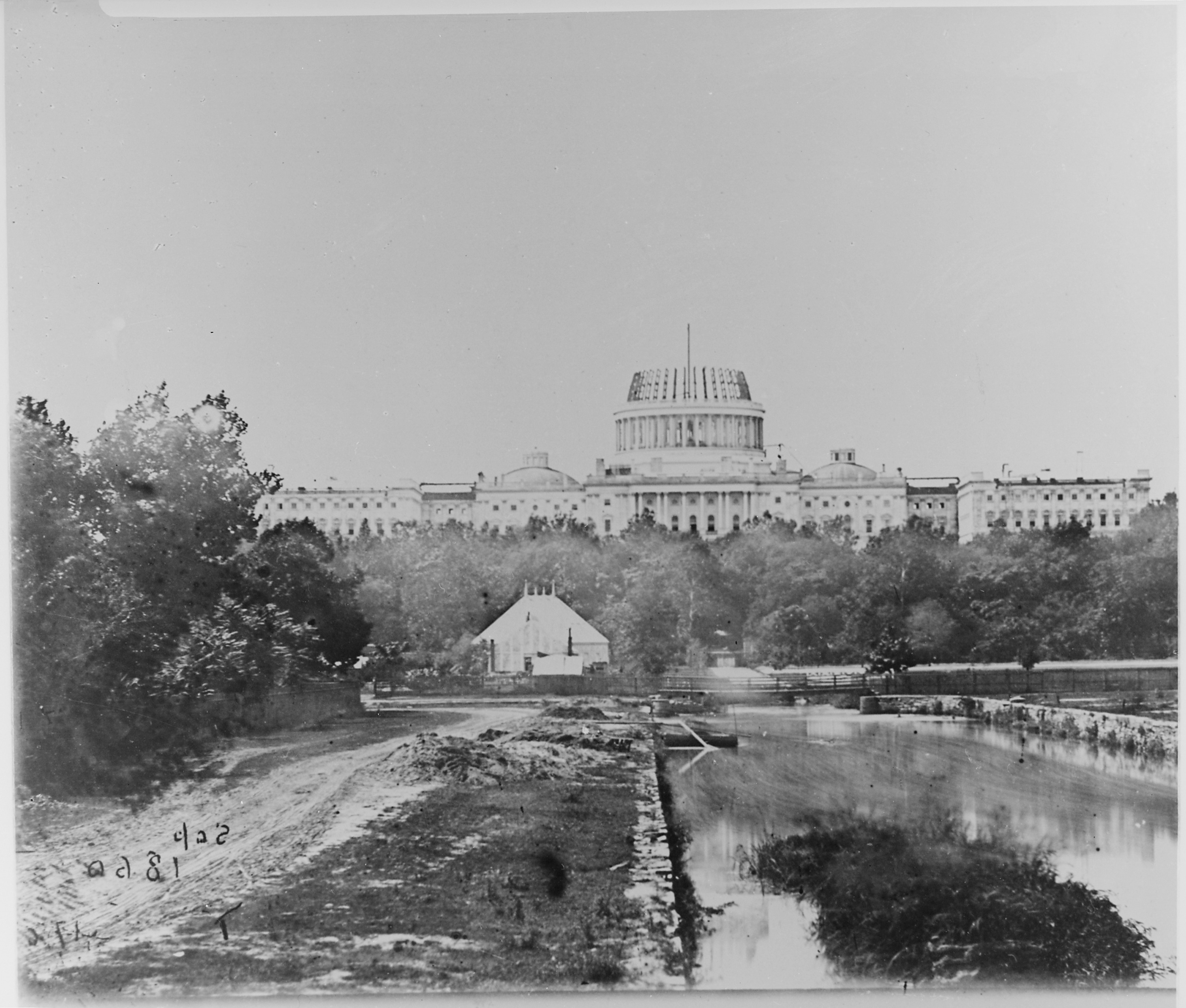Two-thirds of Arkansans Support New Religious Freedom Law
 If you support religious freedom in Arkansas, you are not alone. Nearly two out of three likely voters in Arkansas support the state’s new Religious Freedom Restoration Act, and more than half believe a business-owner (such as a caterer or florist) with religious objections to same-sex marriage “should be allowed to refuse to those services to same-sex couples.”
If you support religious freedom in Arkansas, you are not alone. Nearly two out of three likely voters in Arkansas support the state’s new Religious Freedom Restoration Act, and more than half believe a business-owner (such as a caterer or florist) with religious objections to same-sex marriage “should be allowed to refuse to those services to same-sex couples.”
The findings are the result of a poll commissioned by Talk Business, Hendrix College, and Impact Management Group.
The poll indicates Arkansans strongly support religious liberty; in fact, less than half of Arkansans under 30 expressed that businesses ought to be required to provide “services to same-sex couples.”
What’s striking about the survey are its findings despite its wording. According to the survey’s authors, one key survey question was taken verbatim from a CNN poll conducted last spring. The question reads,
“If a business provides wedding services, such as catering or flowers, should it be allowed to refuse those services to same-sex couples for religious reasons, or be required to provide those services as it would to all other customers?”
The phrases “refuse services to same-sex couples” and “as it would to all other customers” slant the question significantly, missing the point: That this is about the impact of same-sex marriage on religious liberty.
Here is what we mean:



 It’s hard to imagine Congress these days voting to recognize the significant role “the Gospel of Jesus Christ” has played in American society, but in 1856 and 1857 that’s just what Congress did.
It’s hard to imagine Congress these days voting to recognize the significant role “the Gospel of Jesus Christ” has played in American society, but in 1856 and 1857 that’s just what Congress did.